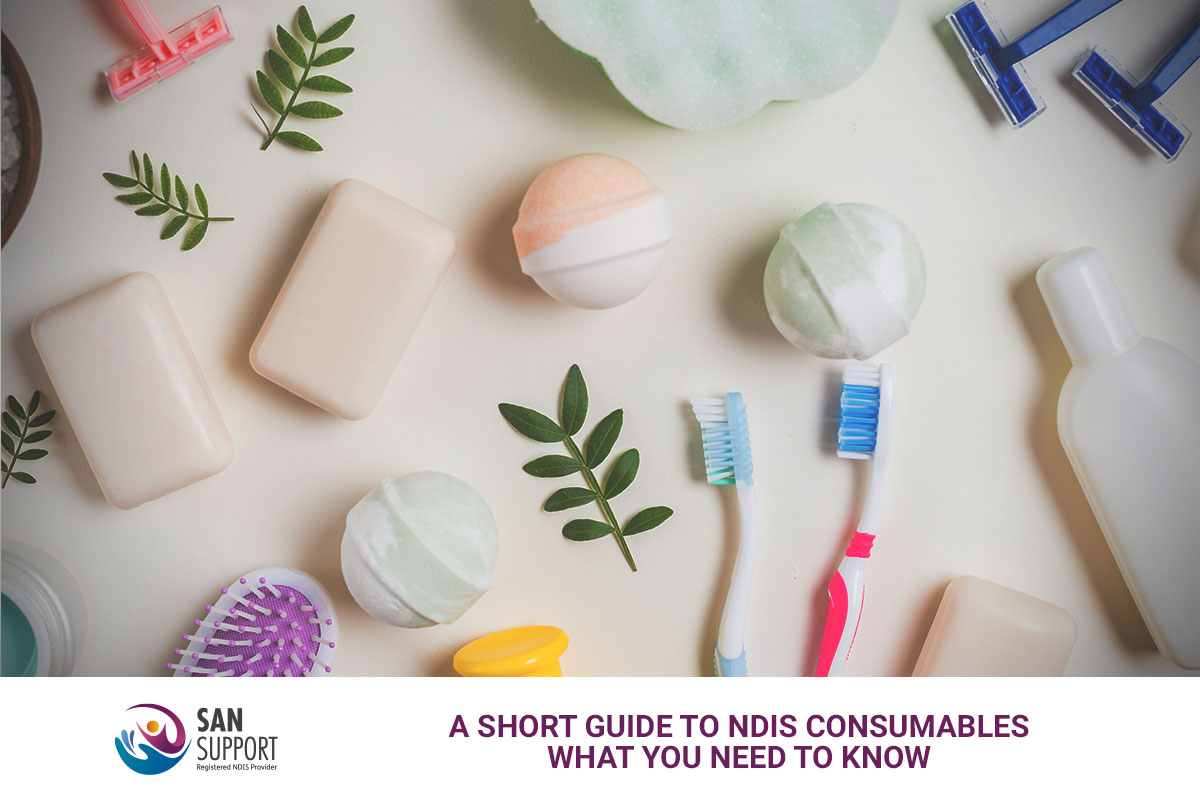
If you are an NDIS participant or a carer supporting someone with a disability, you need to understand how to use your Consumables budget effectively. These consumables include essential daily items that help with personal care, hygiene, mobility and safety.
This guide will walk you through everything you need to know about NDIS Consumables. You will learn what’s covered, where to buy them and how to maximise your funding. Whether you are new to the National Disability Insurance Scheme (NDIS) or looking for ways to better manage your consumables budget, this guide will help you make informed decisions.
What Are NDIS Consumables?
Definition of NDIS Consumables
NDIS Consumables are low-cost, low-risk items that support your daily living needs due to a disability. These products are designed for short-term or single-use and fall under the Core Supports – Consumables budget in your NDIS plan.
Who Can Access NDIS Consumables?
You can access NDIS Consumables if your plan includes funding under Core Supports. The amount of funding you receive depends on your individual needs, goals and level of support.
Types of NDIS Consumables Covered
The NDIS Consumables budget covers a wide variety of essential products. Here’s a breakdown of the most commonly covered items.
Continence Products
Many NDIS participants rely on continence aids for daily comfort and hygiene. The NDIS Consumables budget covers essential items, such as:
- Absorbent pads and pull-up pants to help manage incontinence
- Catheters and drainage bags for urinary continence
- Wipes, gloves and hygiene products to maintain cleanliness
- Mattress protectors and bed pads to keep sleeping environments dry and hygienic
If you need ongoing continence support, you may also qualify for a continence assessment to ensure you receive the right products.
Personal Care and Hygiene Products
Maintaining hygiene and dignity is crucial for people with disabilities. The NDIS Consumables budget covers personal care products, such as:
- Shower chairs and bath seats for safe bathing
- Modified cutlery and plates to assist with eating
- Toileting aids like raised toilet seats and bidets
- Skin care products such as barrier creams to prevent rashes
These products help you stay clean, comfortable and independent while minimising the risk of injuries or infections.
Low-Cost Assistive Technology (AT)
Low-cost Assistive Technology (AT) makes everyday tasks easier. The NDIS covers simple, practical tools, including:
- Walking sticks and crutches for stability
- Reachers and grabbers to pick up objects without bending
- Adaptive writing aids for improved hand function
- Non-slip mats and grip aids to prevent falls
Because these low-cost AT items do not require prior approval, you can purchase them whenever needed.
Nutrition and Meal Preparation Aids
If you have dietary restrictions or need help preparing food, you can use your funding to buy:
- Adaptive cutlery and plate guards to make eating easier
- Blenders and food processors for preparing pureed meals
- Straw holders and spill-proof cups for easier drinking
These aids help you eat safely and independently, allowing you to enjoy meals without unnecessary difficulty.
Wound Care and Medical Supplies
For participants who require medical consumables, the NDIS covers essential supplies such as:
- Bandages and dressings for wound care
- Compression socks and pressure care cushions to support circulation
- Diabetic supplies like lancets, test strips and blood glucose monitors
- Oxygen and respiratory support products including nebulisers and CPAP accessories
If you need ongoing medical supplies, you may request a plan review to ensure your funding meets your needs.
Sensory and Behavioural Support Products
If you have sensory processing challenges or behavioural support needs, you may use your budget to purchase:
- Noise-cancelling headphones to reduce sensory overload
- Weighted blankets and compression vests for calming effects
- Fidget tools and stress relievers to improve focus
- Visual schedules and communication boards for structured routines
These products can enhance focus, comfort and emotional well-being.
How to Purchase NDIS Consumables
You have several options for purchasing consumables using your NDIS funding. Here’s how you can buy the products you need.
Buying from Registered NDIS Providers
If your funding is NDIA-managed, you must purchase consumables from registered NDIS providers. These providers meet NDIS quality standards and offer a range of disability-related products.
Buying from Unregistered Providers
If you are plan-managed or self-managed, you can purchase consumables from unregistered providers, such as:
- Pharmacies and medical suppliers
- Supermarkets and department stores
- Online retailers
This option gives you greater flexibility in choosing where to buy your consumables.
Ordering Consumables Online
Many disability-specific suppliers allow you to order consumables online and have them delivered to your home. This is a convenient and reliable way to ensure you never run out of essential products.
Tips for Managing Your Consumables Budget
To get the most out of your NDIS Consumables funding, follow these best practices.
Prioritise Essential Items
- Make a list of the products you use daily
- Check your remaining budget before making purchases
Compare Prices and Buy in Bulk
- Shop around for the best deals to maximise your funding
- Buy frequently used items in bulk to reduce costs
Keep Track of Purchases
- Save all receipts and invoices for your records
- If you are plan-managed, submit receipts for reimbursement
Consult Your NDIS Support Coordinator
- If you have questions, speak to your NDIS plan manager or support coordinator
- They can help you allocate your consumables funding efficiently
Final Thoughts
Your NDIS Consumables budget helps you access essential items that support your independence, hygiene and well-being. By understanding what’s covered, where to buy products and how to manage your funding effectively, you can maximise your NDIS plan and ensure you always have what you need.
To make the most of your funding, always plan ahead, compare suppliers and keep track of spending. If you ever feel unsure, seek guidance from registered NDIS providers like SAN Support to help you make informed decisions. This guide gives you a complete overview of NDIS Consumables, so you can confidently navigate your plan and purchase the right items to meet your individual needs.
